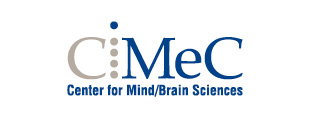Overview
People make dozens of inferences every day. They are crucial for learning, hypothesis evaluation, evidence search and assessment, forecasting and, of course, decision making. The advance of theoretical and empirical knowledge on these higher-level cognitive processes is extremely interesting per se, but it also has broad implications for intervention in many applied settings, such as legal reasoning, medical decision making, and environmental sustainability.
Research directions
Our research agenda ranges from experimental psychology to formal epistemology and makes use of both original experimental procedures and theoretical modelling. Our main research interests include:
- inductive and probabilistic reasoning;
- causal cognition;
- information search;
- decision making;
- decision biases;
- applied reasoning and decision making (e.g., legal reasoning, medical decision making, environmental sustainability).
Members
- Katya Tentori, Principal Investigator
- Stefania Pighin, Principal Investigator
- Sarah Placì, Postdoctoral fellow
- Flavia Filimon, Postdoctoral fellow
- Alessandro Bogani, Postdoctoral Fellow
- Paolo Ghin, PhD student
Publications
For a complete list: Katya Tentori personal page and Stefania Pighin personal page
Ongoing Grants
- 2023-2025: Reasoning with hypotheses: Integrating logical, probabilistic, and experimental perspectives. MUR grant.
- 2023-2025: Boosting human wellbeing with behavioural insights. MUR grant.
Ongoing collaborations
- Ruth Byrne, Trinity College (Ireland)
- Vincenzo Crupi, University of Turin (Italy)
- Donatella Ferrante, University of Trieste (Italy)
- David Lagnado, UCL (UK);
- Andrea Passerini, DISI, University of Trento (Italy)
- Lucia Savadori, DEM - University of Trento (Italy)

